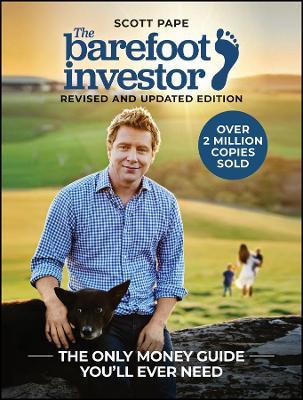Due to the small markets we work in, by necessity, Australian and New Zealand comedians make money in a greater variety of ways than our overseas counterparts. This is an advantage, because we develop a wide range of skills. Skills that people are willing to pay money for.
From 2010-2021 I was a comedy writer/producer and sometimes I still dabble. These are all things I’ve tried myself to make a living and to make life interesting (with the exception of No. 15 & 17).
Try them yourself!
It just might lead you to what you were meant to be doing all along.
Job ideas for Australian and New Zealand comedians and comedy writers
1. Write comedy for companies who have a sense of humour or that you think are cool

A few years ago I was walking down the street when I saw a truck drive past. On the side of the truck was a joke about pasta. So I got in touch with the company (a food ingredients company) and asked if they wanted some more jokes about food for their trucks. They did. They bought two jokes about food for $1000. One of them ended up on the side of their trucks that drive around the country.
How much can I make?
$50 to ∞
Next steps
– Make a list of local companies that use humour in their advertising or marketing.
– Think about things you love and if the companies that make those things could use some humour in their marketing.
– Get an email off the company’s website or Facebook ‘about’ page.
– Write them an email saying that you love what they do and were wondering if they’d like some help.
2. Write greeting cards

I was in a gift shop one day looking at funny birthday cards, when I realised, “Oh yeah, someone needs to write that.” In my experience, you’re more likely to sell lines to UK and US greeting card companies, but it’s always good to reach out to some local makers of funny cards and see if you can do some writing for them.
How much can I make?
$30 to $80 per card.
Next steps
– Visit some gift shops, newsagents or markets.
– Note down the names of companies that make greeting cards you find funny. This info can be found on the back of the card.
– Reach out to the companies, introduce yourself and ask if they’re open to submissions. Most will have something on their website about this, so you can save yourself some time by checking first.
– For more companies to reach out to, Google ‘funny greeting cards’.
3. Direct, write or produce another comedian’s festival show

You might be the sort of person who loves to make others look great on stage. If so, helping other comedians direct, write or produce their festival shows can be one of the most satisfying experiences. Not only will you deepen your relationships with performers, venue managers and other behind-the-scenes players, if your show goes over well with audiences, you can make some okay money and become a gun for hire that festival management themselves will pay to direct future shows.
How much can I make?
If hired by the artist:
Option a: Up front payment, plus share of ticket sales.
Option b: Split all costs with the artist for a greater share of ticket sales.
Total: -$500 to $3k
If hired by a festival:
Up front payment of up to $2.5k, plus potential up front payment from the artist and share of ticket sales.
Total: $2.5k-$8k
Next steps
The performer turned director/writer/producer route:
– Register a festival show or get involved in someone else’s (sketch shows can be great for this). Get as much stage time as possible. You need to feel what it’s like to be the person on stage. This will give you empathy when you are directing/writing/producing others later on.
– Make it the best thing you’ve ever made. Ideally, sell out some shows, win great reviews and awards. This will generate word of mouth, increasing awareness of you and your work. (easier said than done, I know)
– Get to know a lot of people in the industry and develop relationships. It’s completely normal for this to take many years (minimum 5-10).
– Say yes when another performer or someone in festival management asks if you would be interested in directing/writing/producing a show!
– Make it the best thing you and the person you’re working with has ever made and you’ll get another opportunity.
Another route to directing/writing/producing:
– Build relationships with comedians you like and whose work you love.
– When you feel like you have something to offer, offer to help them. If they say yes, keep helping over many years! You might be lucky enough to end up directing/writing/producing their shows.
4. Collaborate with a cartoonist

Some people are great at drawing, some are great at coming up with great visual jokes. Combine the two and you can create funny drawings that newspapers and magazines may want to publish. The above cartoon was the result of a collaboration I did with Jack Chadwick.
How much can I make?
$50 to $200 per cartoon
Next steps
– Read some New Yorker cartoons for inspiration.
– Find a cartoonist whose work you like, but whose work is going under the radar.
– Introduce yourself and suggest collaborating to create some humorous cartoons.
– Send the cartoons to publications you think they’d be suitable for.
5. Write an article for a newspaper or magazine

Newspaper & magazine editors dream of receiving well-written articles they can put straight to print. If you have opinions (and every comedian does) write them down in 500-800 words and send them to some editors.
You can write funny articles or serious articles.
Funny articles with a point tend to be a rarer commodity on an editor’s desk, because not everyone knows how to write funny things. So they can be a good way to stand out.
How much can I make?
$10 to $500 for columns or blog posts. Up to $2000 for features.
Next steps
– Go to a library, where it’s free to read magazines and newspapers.
– Think about what you like and what you’re good at. Then see if there’s a magazine for that. I once wanted to be a golfer, so when I was starting my writing career I wrote for golf magazines.
– Decide which national newspapers or magazines you could write something for.
– Note down the editor’s or the submissions email, which can usually be found a few pages in on the contents page. It’s always a better bet to send your work directly to the editor.
– Send your article to the magazine you most want to get published in. Follow up with a phone call in a week if you haven’t heard back.
– If they pass or you don’t hear back, send your article to multiple publications.
6. Write for online crowdsourcing platforms

There are online platforms that buy jokes and ads from writers all over the world. It’s nice to be a part of a global online community of writers, plus if you put in the time, you can actually make a bit on the side by writing for one or all of these platforms.
How much can I make?
US$10 to $100 per joke or ad.
Next steps
– Visit the sites below and contribute if you want to.
Write Label
Comedywire
Comedy Crowd
– Google ‘paid comedy writing jobs online’ and other variations of that phrase and see what else is out there. New opportunities pop up sporadically.
7. Online surveys & market research

Companies that conduct this research are always looking for smart, articulate people to provide feedback on everything from new products to advertising campaigns.
How much can I make?
$10 to $100 per campaign in cash or gift cards.
Next steps
– Google ‘paid online surveys Australia/NZ’ & ‘paid market research Australia/NZ’.
– Try reaching out to the companies that facilitate this research directly.
8. Help others. Hire a comedian or comedy writer

Most of the work in a small industry tends to go to people who go out of their way to help others. The other great thing about making this a part of your strategy is it feels fantastic. If you’re feeling sorry for yourself or just feeling a bit flat about a lack of work, the best thing to do is to shift some of your focus onto what you can do to help others with their issues.
Next steps
– Ask people what they’re working on. Think about what you can do to help them. This could be introducing them to someone, sending them an article you read or posting about their work on social media.
– Think about any projects you have ongoing right now that would benefit from some extra comedic minds. Ask for help. If you can’t pay for it, think of other ways to say thank you. For more support, join the Comedy Writers Association of Australia or the New Zealand Comedy Guild.
Money management and self improvement ideas for comedians and comedy writers
9. Read The Barefoot Investor

The Barefoot Investor: The Only Money Guide You’ll Ever Need is the best book I’ve ever read on money. I say that having read most of the personal finance books in the library. It’s that good. The author speaks in an easy-to-understand way and the book is the second best-selling Australian book of all time (behind Fifty Shades Of Grey). [1]
It’s absolutely worth becoming good with money so that you can weather life’s unexpected events.
How much can I make?
How much is enough?
Next steps
– Go to a library and borrow ‘The Barefoot Investor: The Only Money Guide You’ll Ever Need’.
– Read it!
10. Make a voluntary contribution to your retirement fund

If you are a low or middle-income earner and make personal (after-tax) super/KiwiSaver contributions to your retirement fund, the government also makes a contribution (called a super co-contribution) up to a maximum amount of $500 (in Australia) or $521 (in New Zealand).
Make no mistake, this is free money. You can’t withdraw it until you’re at retirement age, which will give it more than enough time to compound into even more free money.
Example: You are 25yrs old and you make enough voluntary contributions to your super to get the government co-contribution of $500. Assuming a 5% return, when you’re able to withdraw the money from the age of 65, that $500 will have turned into $3519.
How much can I make?
From $20 to $521 per financial year, depending on the country you live in, eligibility and how much you voluntarily contribute. [2]
Next steps
– Google ‘Government super contribution’ and find out how much the Government will contribute.
11. Set new boundaries around what you will and won’t do for free

Comedians or any other sort of artist are often the first people to be asked to work for free. No matter how experienced we are, we will all need to, or decide to work for free sometimes. Even lawyers do this. It’s called pro bono.
Maybe you’re learning a new skill or writing something as an experiment that might lead to future paid work.
When you take an unpaid gig, make sure you’re very clear on why you’re taking it. Every time you say yes to something, you’re saying no to another opportunity that hasn’t come along yet.
Setting new boundaries around the type of unpaid work you take on can be incredibly liberating. Saying yes to meaningful unpaid work will lead to more regular and satisfying paid work in the long run.
Next steps
– List all of your unpaid gigs.
– List all of your paid gigs.
– For each unpaid gig ask yourself, “Why am I doing this gig?”
– If you can’t come up with an answer that is going to help you reach your goals, add it to a new list called ‘stop doing’.
12. Get some counselling

When you’re in a good place mentally, everything in your life seems to come to you, rather than you having to chase it. Money included. Learning about why you are the way you are is one of the best things you can do for your future success.
Next steps
– Ask yourself if there is something you’re confused about or unable to fix in your life. Perhaps you feel stuck or blocked with something. These are excellent reasons to speak to a therapist.
– See if you’re eligible for government support. [3]
– Even if you’re not, invest in yourself if you can – get a referral from your GP and see someone whose job it is to help people like you be the best version of themselves. It will change your life.
Regular jobs with a twist
13. Host Trivia Nights

I hosted trivia for SoundStorm for 7 years in Melbourne and it was one of the most fun experiences I’ve had doing something loosely related to comedy. The skills required to be a trivia host come naturally to a comedian. And there isn’t the pressure of having to be funny.
How much can I make?
Between $100 to $200 a gig (2-4hrs work).
Next steps
– Start by Googling trivia companies in your city or pubs that host trivia nights.
– Send the owner of the company/pub an email.
14. Work in a start-up

The chaos of working in entertainment is incredibly similar to the chaos of working in a start-up. You’ll feel right at home in a way that most people from more traditional work backgrounds will not. The best aspects about working for a start-up is everyone works together towards a common goal, you get paid well for your time and there are huge career growth opportunities. Easily the most fun and rewarding jobs I’ve had outside of entertainment have been in start-ups.
How much can I make?
$50k-150k p/year for 40hrs a week (ish)
Next steps
– Think about what you’re interested in eg. education, finance, climate change, AI, food etc.
– Reach out by email or LinkedIn to people who run/work at start-ups whose mission resonates with you. Say that what they’re doing is something you care about too and that you want to help. Make sure you mean it! Doing this has gotten me many meetings and jobs over the years.
– Join Blackbird’s Lilypad talent community and view open startup jobs. This will start to give you an idea of what sort of jobs you can do in a startup.
– Message any connections on LinkedIn that work in a start-up. Find out what it’s like and ask them what they think you would be good at if you worked at one. If you don’t know anyone who works at a start-up, send me a message.
– Go on Seek and search ‘startup’. Focus less on the advertised roles and more on what the company does. Would you do your best comedy writing work writing for a show you hated? Probably not. If you decide to work at a start-up, it matters that you care about the mission of the company. Otherwise when times get tough, you’ll bail, missing out on the rewards that come from long-term commitment. Start making a list of start-ups that are doing things you care about.
15. Be a tour guide

Use those engaging mic skills of yours to entertain and inform people who want to learn something. The world of comedy and tour guiding are closely linked – for example, each year there tends to be at least one walking tour show at the Melbourne Comedy Festival. This Sydney walking tour appears to run year-round.
Next steps
– Search ‘tour guides’ on Seek and think about what places you would be excited to guide tourists.
– Talk to some comedians who are or used to be tour guides. They’re out there!
Other surprising ways Australian and New Zealand comedians make money
16. Cold Call

Picking up the phone and calling can set you apart from others. It takes some courage. It’s still one of the most effective ways to quickly get work. There are countless businesses all around Australia and New Zealand who would love to work with someone friendly, funny and reliable who has the confidence to pick up the phone and ask for the gig.
Next steps
– See tip No. 1
– Pick a company to call. Find the name of the person you want to speak to.
– Decide on what outcome you want from the call.
– Write a short list of the things you want to say.
– Pick up the phone and make the call.
– If they don’t have anything for you, ask them if they know of anyone who does.
17. Hold a fundraiser

You can hold a fundraiser for anything you want. Some ways that comedians have done this is via Twitch streams or by doing a line-up show with friends.
Next steps
– Talk to some people who have held fundraisers or staged line up shows previously. Follow their advice!
Conclusion
At first, these avenues for different types of paid work might seem like a distraction from why you became a comedian or writer in the first place. I’d encourage you to give yourself permission to explore, especially if you’re within the first 10 years of your career. Sometimes the garden paths we wander down can turn into these great big open roads that take us ten times further than the original path we set out on.
###
Notes
[1] List of the top Australian best-selling books of all time.
[2] Australia super co-contribution and New Zealand KiwiSaver government contribution.
[3] Learn more about Australia’s Mental Health Care Plan and New Zealand’s mental health services.
The video version of this article can be found here.
Art by Sierra Truong
Thanks to Annie Louey, Jason Marion, Rakhesh Martyn and Sam Smith for reading drafts of this.
Get more things like this in my free weekly newsletter 3 Things.

Leave a Reply